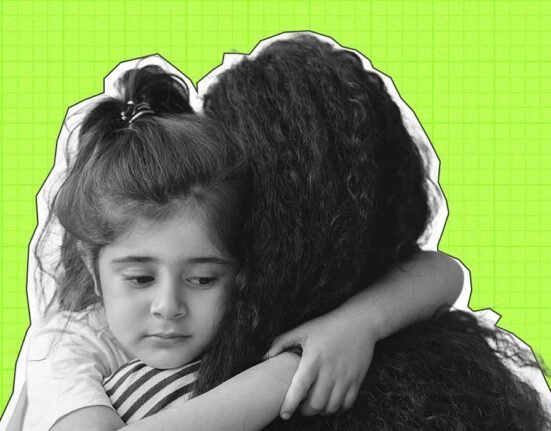Grudges are referred to as a deep-rooted feeling of anger and frustration toward a person who is thought to have hurt or wronged the person. They arise from a conflict that is not resolved and in which one thinks another person has done wrong to them or treated them disrespectfully, or has deceived them. Everyone feels disappointment in relationships; some might hold onto those negative feelings, while others might move on. But it is a mystery why some people cannot forget their grievances.
“I was hurt back then, so I will not be the same friend for her.” This tendency has many psychological dimensions to look at. Suppose we want to understand the causes behind this tendency. In that case, we have to study all segments related to us, such as how we respond, how we introspect, how we see ourselves, how external things affect ou, and how we tackle hurtful situations. While investigating the reasons, we’ll get better insights about human behaviour and how it changes in interpersonal relationships.
Read More: Ways to Stop Holding Grudges and Move On
The Psychological Dimensions
1. Recognition of Threat, Insult on the Moral Ground
Moral violation is the factor that has been found in grudges. They feel that they have been treated unjustly by people within a closed circle. So whenever people recognise injustice, they get angry or might feel disgusted and disregardful. These emotions not only come from personal interest, but they also follow the trail of generational and cultural conditioning. Because of this, People are compelled to follow the societal norms. These emotions have been deeply embedded as enduring resentments (Haidt, 2003). Forgiveness is not an option for people with grudges.
These emotions never go away with time. The Just World Hypothesis is also associated with our actions and their outcomes accordingly. Melvin J. Lerner came up with the theory that good deeds deserve to be reciprocated with rewards and bad deeds are punished (Lerner, 1980). Others’ rude behaviour stuck with them in the form of a grudge. They thought it was a justifiable way. In their mind, they think, ‘What they did to me was wrong. I will never forgive them until they realise their fault.’
2. The Protection of Self-image
People may retain grudges not only because they were emotionally hurt, but also because they felt bad about themselves. According to Baumeister et al. (1996), when one believes they are playing a positive role and if someone’s behaviour is in conflict with that role, then one’s ideal self expectation might be shaken. Because they may take it personally, they may find it difficult to let go, which results in intense animosity in an attempt to preserve their dignity.
In 1982, Baumeister mentioned the self-presentation motives and highlighted the fact that people are aware of their public image for ingratiation and maintenance of their expected behavioural standards. Then, suppose that the public image is damaged, a grudge can protect them and help them keep their self-respect and emotional equilibrium. For instance, assume you have a self-image of being kind and helpful, but if one day your friend cheats you and behaves totally against you. This betrayal makes you question your sense of perception and judgement. In that confrontation, there is one solution, which is to hold a grudge against them.
Read More: The Science of Forgiveness: How Letting Go Can Improve Your Mental Health
How the Brain Works
The brain is activated while the reward mechanism is on, and that same activation occurs at the time of holding grudges. The caudate nucleus is part of a system that is associated with rage and resentment (de Quervain et al., 2004). This is a short-term reward that makes the brain replay painful events over and over, which releases neurotransmitters in the parts of the brain that help us imagine getting payback. Almond shaped part of the brain, named the amygdala, consolidates long-term memories of intense emotional arousal, so in emotions like resentment, it plays an important role (LeDoux, 1996).
Read More: The link between Personality Traits and Relationship Satisfaction
How the Big Five Personality Traits Influence Resentment
- Neuroticism: People who are very distraught are more likely to be angry, anxious, self-conscious, and open to being hurt. These traits lead to overthinking past unresolved issues and unfair moments (John, O., 1999).
- Agreeableness: People who are not very pleasant (antagonistic) tend to be chilly, argumentative, critical, and unable to forgive. People low in agreeableness may take others’ words or actions as against them, which can evoke the nature of holding bitterness (John, O., 1999).
Selfish people lose themselves in grandiosity and vulnerable narcissism. In vulnerable narcissism, they are characterised as overindulging in self-centeredness, inability to take criticism, low self-esteem, withdrawn tendency. If these boundaries are crossed in any way, the feeling of resentment clings deeply. (Exline et al., 2004).
Replaying the Past Wounds in the Mind
Those who overthink past things that have happened and are uncontrollable tend to stick to negative emotions toward people. All concentration is on unresolved things rather than present things. And it might create a negative mental impact. People who overthink their thoughts (Nolen-Hoeksema et al., 2008). Self-regulation can manage all highly aroused emotions that are threatening.
Read More: Why letting go is important in Life
Why Letting Go is Difficult
Emotional sensitivity can work in both ways; it can help you to be mindful and let go of stressful things, while it can stop you at one point for the sake of frustrating, hurting emotions. And that is why letting go is difficult; moreover, it needs a sensible, analytical, empathetic approach. Because it wants other people to suffer, your resentful thinking begs you not to forgive while you are going through a difficult time. For some, “Tit for tat” is the best approach to handling life’s challenges. Today’s world is all about competition, but still, some have time for vengeance. In this case, social cues also encourage us to hold grudges.
Read More: The Psychology of Letting Go: 8 Attachments that hold us back
Conclusion
When considering the reasons behind people’s intense resentment, a variety of internal and environmental causes are important. Some are using it as a shield, and others are conditioned to it. Ruminating over the question of why this happened in the first place might lead to other factors that make us hold on to negativity, such as personality traits, and how we manage interpersonal stress.
Searching for justice is the main motive of the person, which might not be fulfilled. But it creates a mirage of standing up for oneself. Not letting things go can give them short-term control and dominance. They have adverse effects, like it can spoil your peaceful mind and relationships. Forgiveness is not a defeating approach; rather, it is mindful and liberating. So recognising this smart move can help you grow personally, it can boost your productivity and positivity.
Living well is the best revenge.
George Herbert
FAQs
1. Is holding grudges a trauma response?
People who have stuck with past emotional wounds, anger, and resentment are more likely to experience severe depression and post-traumatic stress disorder, as well as other health conditions
2. What personality traits hold grudges?
All types of personality tend to hold grudges. But, most likely, people who are more inclined towards introversion, neuroticism and low in agreeableness. They are likely to show a predisposition toward hostility. Introverted, judging, and feeling types, in particular, are more likely to internalise their emotions, allowing resentment to fester.
3. Why do I find it hard to forgive?
Research says that people who are not forgetting those traumatic memories and who are continuously reliving those memories, for them it hard to forgive others. They don’t take chances to trust others. They expect others to betray them again in the future.
References +
Baumeister, R. F. (1982). A self-presentational view of social phenomena. Psychological Bulletin, 91(1), 3–26. https://doi.org/10.1037/0033-2909.91.1.3
Baumeister, R. F., Smart, L., & Boden, J. M. (1996). Relation of threatened egotism to violence and aggression: The dark side of high self-esteem. Psychological Review, 103(1), 5–33. https://doi.org/10.1037/0033-295X.103.1.5
de Quervain, D. J. F., Fischbacher, U., Treyer, V., Schellhammer, M., Schnyder, U., Buck, A., & Fehr, E. (2004). The neural basis of altruistic punishment. Science, 305(5688), 1254–1258.
Ekman, P. (1999). Basic emotions. In T. Dalgleish & M. J. Power (Eds.), Handbook of cognition and emotion (pp. 45–60). New York: Wiley
John, O. (1999). The Big-Five trait taxonomy: History, measurement, and theoretical perspectives. Published As.
LeDoux, J. E. (1996). The emotional brain: The mysterious underpinnings of emotional life. Simon & Schuster.
Lerner, M. J. (1980). “The belief in a just world,” in The Belief in a Just World: A Fundamental Delusion, ed. M. J. Lerner (New York, NY: Springer), 9–30. doi: 10.1007/978-1-4899-0448-5_2
Paul Johns (2014). Chapter 3 – Functional neuroanatomy, Clinical Neuroscience, Pages 27-47, ISBN 9780443103216, https://doi.org/10.1016/B978-0-443-10321-6.00003-5.













Leave feedback about this